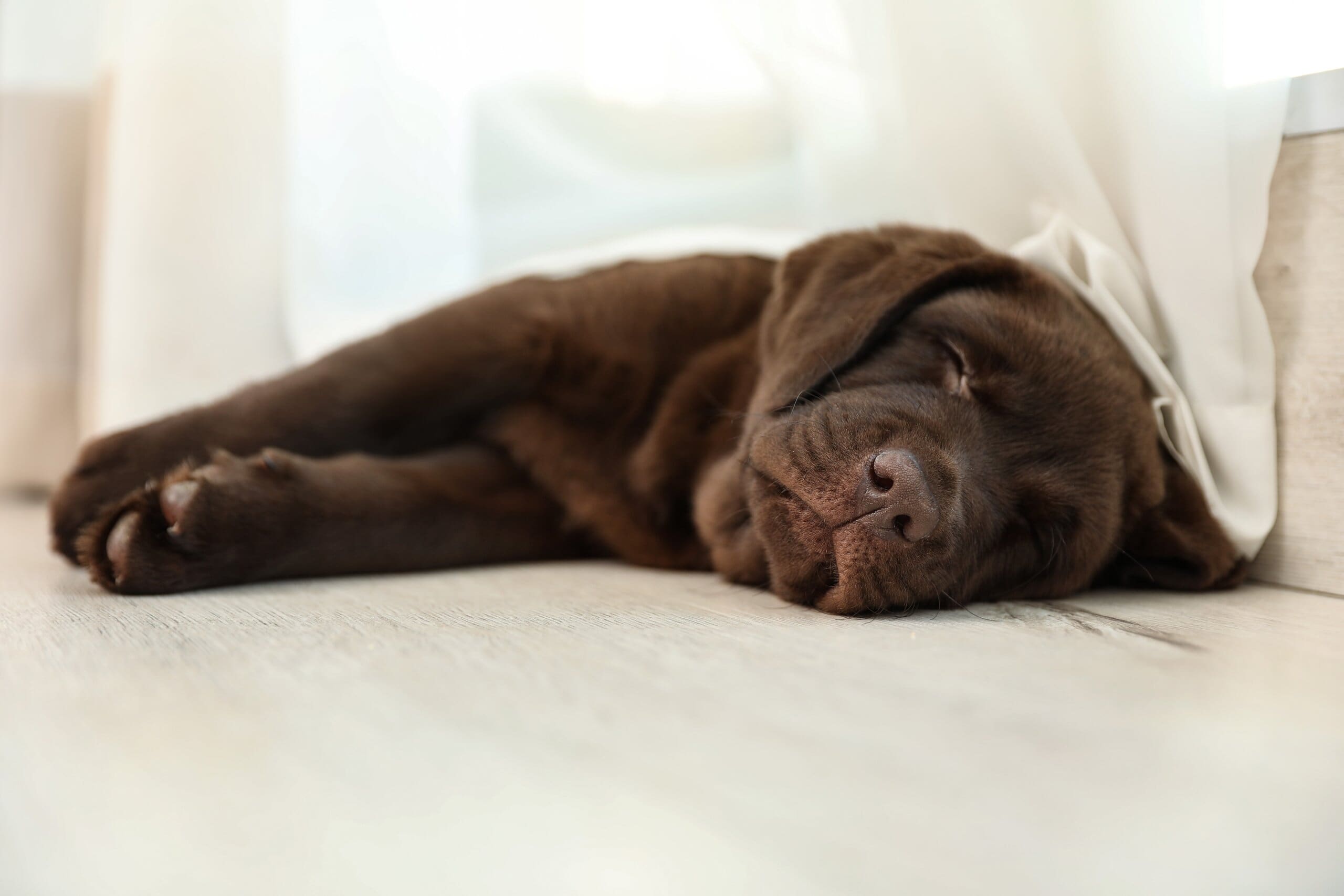It’s a universal pet owner experience to look over at your dog and wonder how they manage to sleep so much, right? You might wonder what they’re dreaming about, how they manage to look so cute, or even how they manage to snore so loudly…
We’ve researched exactly what impacts your four-legged friend’s sleep, so snuggle up with them (we know they’re already on the bed) and learn why they love their sleep so much.
They are natural hunters that need to conserve their energy
It might be difficult to imagine your chunky labrador as a carnivorous predator, but all dogs are of course descendants of wolves. In the wild, all carnivorous animals had to be efficient hunters. To hunt effectively, they needed to exert bursts of energy during hunts, and then conserve as much energy wherever possible.
Sleeping helps everyone, even humans, conserve energy. Dogs use sleep as a way of saving their energy for activity, learnt from their days as wolves.
Dogs have a much higher metabolic rate than humans, meaning they burn a lot of energy quickly. By sleeping a lot, dogs can balance their energy expenditure and recovery, making sure they have the stamina for an active lifestyle. While they might have swapped hunting for playing catch in the garden, they still need to be ready.
Dogs, especially larger breeds, need up to 14 hours of sleep per day, while smaller breeds might sleep even more. The smaller the dog, the quicker its energy runs out, so they need to recover for longer.
They grow and develop quickly as puppies
It’s an unfortunate fact of life that a dog’s existence is never as long as we’d like. Their relatively short lifespan means that they do a lot of growing in a short amount of time. As puppies, dogs need even more sleep, as they undergo rapid development - just like human children and teenagers need to sleep more.
Sleep is crucial for their physical and mental development as growth hormones are released during deep sleep phases, promoting healthy development of bones, muscles, and tissues.
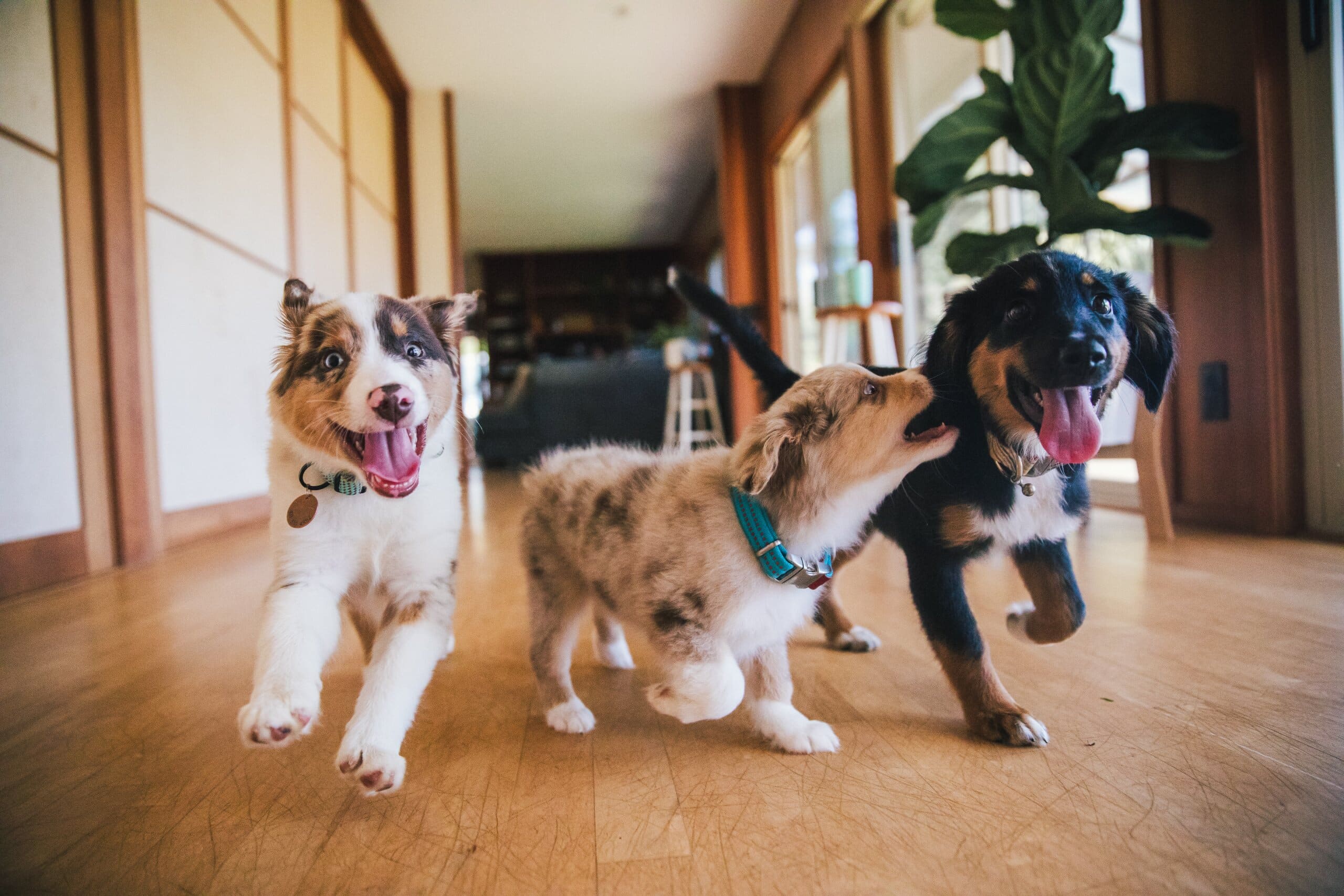
Their bodies need to restore and recover from activity
Just like human bodies use sleep to repair themselves, so do dog’s bodies. During sleep, their bodies go through essential restorative processes. This includes muscle repair, protein synthesis, and the release of growth hormones.
During deep sleep stages, their body - just like a human body - releases hormones that repair damaged or tired muscles and encourage them to grow. For dogs involved in rigorous training or daily exercise, sleeping a lot is vital for a healthy lifestyle. Just like we need to sleep after a heavy gym session, active dogs need to sleep in order to repair their cells and tissues.
Sleep can also act as pain relief for dogs whose bodies are sore and aching after a long walk or exercise. If your dog is sleeping a lot after a big walk, they’re not just tired - they’re letting their body recover and ensuring they don’t feel achy.
Similarly, dogs use sleep to regulate their body ‘systems’, like their immune system, metabolism and hormonal balance. Proper sleep ensures these systems function optimally, as their body can focus solely on repair and restoration. This supports your dog’s overall health and well-being.
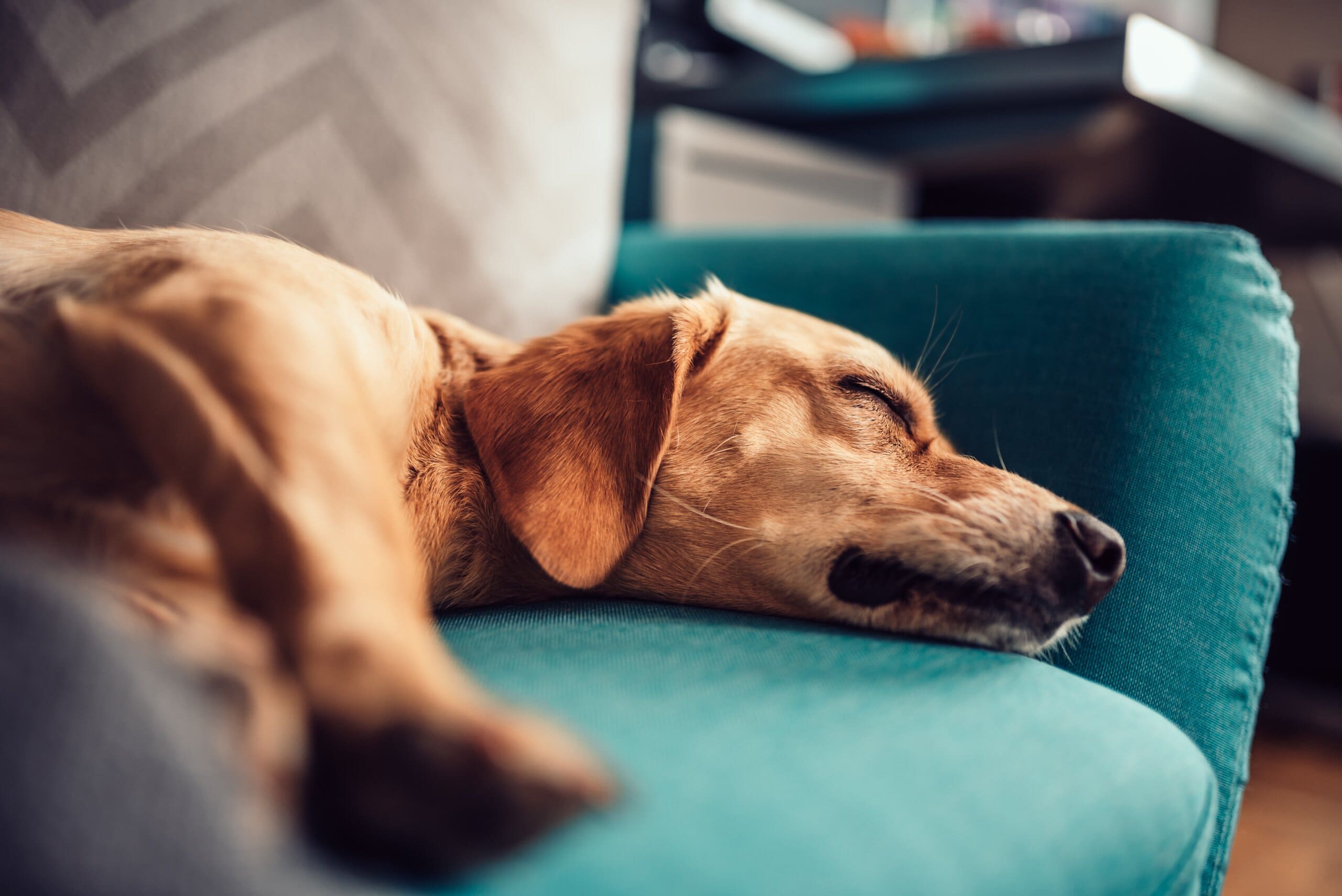
They might be bored - or adapting to their environment
In homes where they’re not getting enough mental stimulation or activity, dogs may sleep more to fill their waking hours. While humans can occupy themselves by going on their phone, or reading a book when they’re bored, your dog have very little option but to sleep.
Dogs are social animals that thrive on companionship and socialisation, but if they’re not being stimulated, they will sleep instead. They're also highly adaptable - which is what makes them such great pets - so if they’re used to being bored, they will begin a pattern of sleeping all the time.
Dogs also like to adapt their sleeping pattern so they can spend more time with you - if you tend to stay up late at night, you might find your dog sleeps more during the day so they can stay awake with you. Cute!
In another attempt to adapt to their environment, changes in the weather will affect your dog’s sleep. During the summer, your dog will likely sleep more during the day to avoid the heat, and be more active at night when it’s cooler. Read our 7 Tips For Keeping Your Dog Cool At Night to keep your furry friend as comfortable as possible.
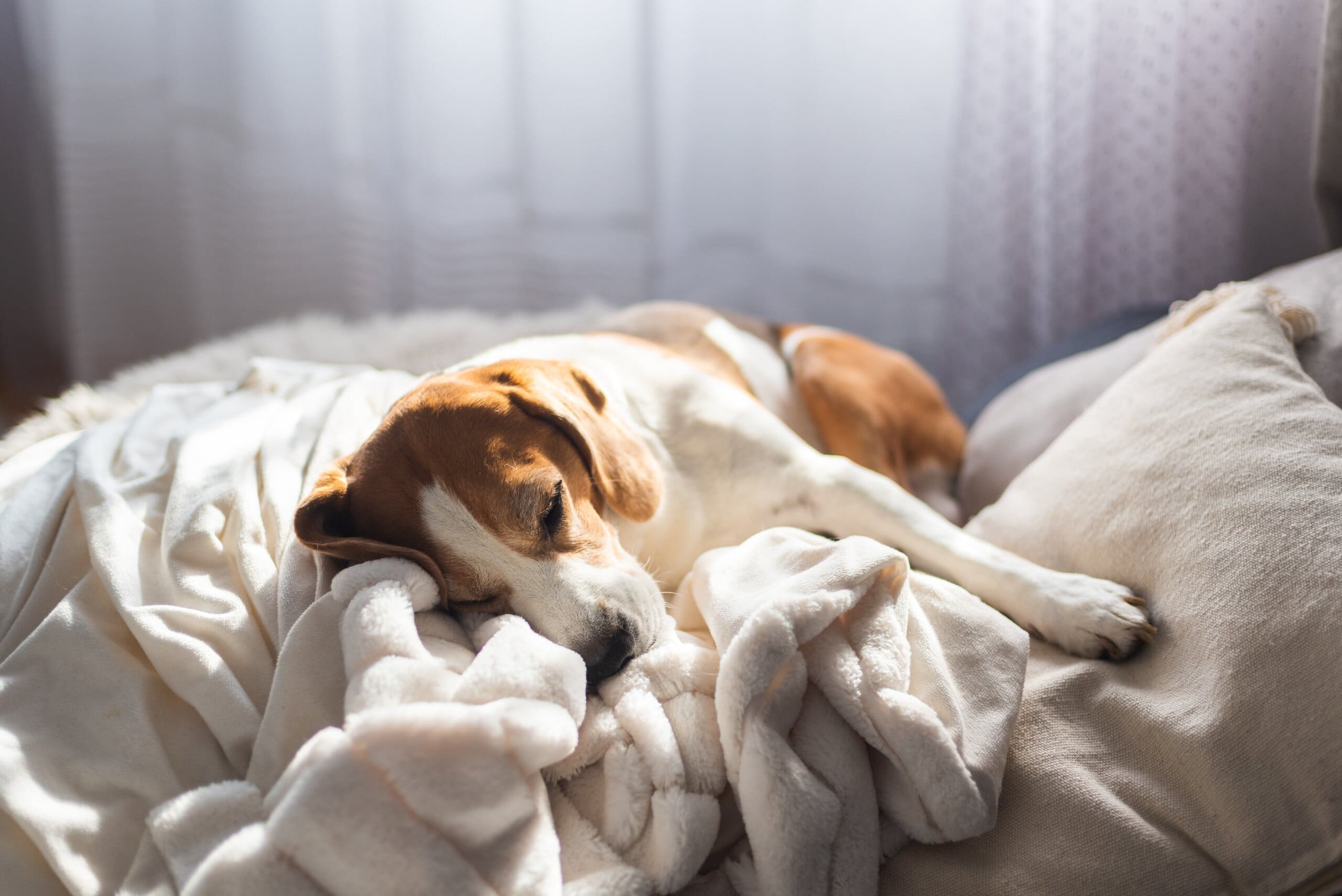
Their age will play a significant role, as will their health
Puppies and older dogs will sleep a lot more compared to adult dogs. As we mentioned before, puppies need more sleep due to their rapid growth and development. Senior dogs, however, sleep a lot due to decreased energy levels - just like old humans do!
Just like humans, older dogs will start to decline in their ability to recover quickly from exercise, so they’ll need more sleep after even a gentle walk. Older dogs might also just become less interested in energetic play, choosing to sleep instead.
As dogs get older, they’ll adapt to your household’s routine, changing their sleeping pattern around the presence of family members. If your family is at work or school all day, it’s likely that your dog will sleep during the day so they can be awake when you all arrive home. As your dog gets older, it’ll become more and more used to that routine, making it seem like they’re sleeping more than when they were a puppy.
Sick dogs sleep more, too, just like humans do. However, dogs aren’t able to tell us when they are poorly, so they often take themselves away and try to ‘sleep it off’. They don’t understand that they can get help for their problem, nor can they communicate what the problem is, so the easiest thing to do is to sleep as their body tries to regain strength.
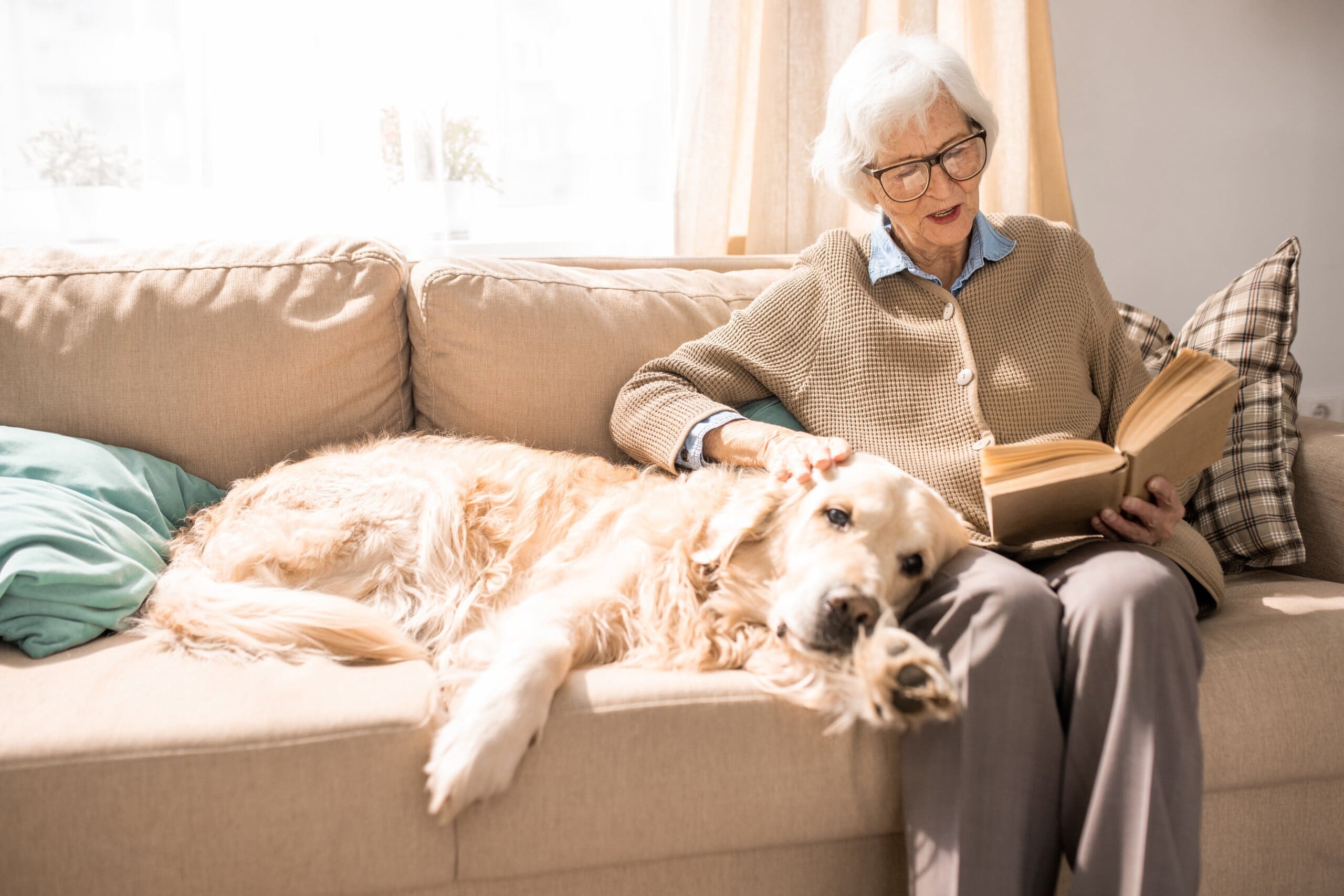
Let your dog snooze as long as they need
Dogs' sleep patterns are a combination of their biological traits, their evolution, and their individual health and lifestyle factors.
It's important for dog owners to provide their furry companions with a comfortable and quiet sleeping area. You can even let them in your bed without feeling guilty after reading our post on The 6 Sleep Benefits Of Sharing A Bed With Your Dog! They also need regular exercise to expend energy, mental stimulation to keep their minds engaged, and a balanced diet to support their overall health.
Understanding and accommodating a dog's natural sleep needs help ensure they live a happy, healthy, and well-rested life.
